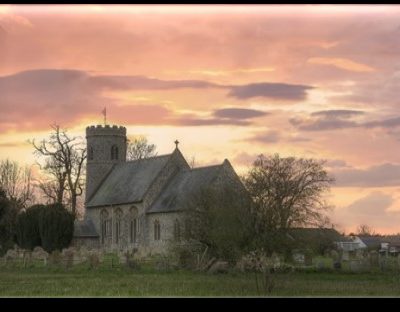Wisconsin Evangelical Lutheran Synod (WELS)

The Wisconsin Evangelical Lutheran Synod (WELS) share a commitment to be faithful to the Scriptures and the Lutheran Confessions. The early churches in the Wisconsin Synod had a strong German background; services and church business were conducted in German. Synod officially becomes Wisconsin Evangelical Lutheran Synod in 1959.
The Wisconsin Evangelical Lutheran Synod is in fellowship with the members of the Confessional Evangelical Lutheran Conference, all of which meet this requirement.
The Wisconsin Evangelical Lutheran Synod maintains four schools of ministerial education: two college preparatory schools Michigan Lutheran Seminary and Luther Preparatory School; a pre-seminary and teacher training college, Martin Luther College in New Ulm, Minnesota; and a seminary for training pastors, Wisconsin Lutheran Seminary, located in Mequon, Wisconsin.
The Wisconsin Evangelical Lutheran Synod teaches that all forms of Christian fellowship require complete unity in matters of doctrine.
Doctrine of the ministry — The Wisconsin Evangelical Lutheran Synod believes that there are many different forms of one, divinely established Ministry. These forms of the Ministry include pastor, Christian day-school teacher, staff-minister and others.
History:
1828 United Rhine Mission Society formed was in Germany.
1837 German mission society sends John Muehlhaeuser to serve in North America.
1848 Muehlhaeuser moves from New York to Wisconsin.
1850 First meeting of the new Wisconsin Synod at Granville church with Muehlhaeuser as president.
1860 the Wisconsin Synod became increasingly conservative along the Lutheran viewpoint and against the Reformed.
1865 Seminary building dedicated in Watertown Synod periodical Gemeinde-Blatt appears.
1867 the synod joined the General Council, a group of Neolutheran synods that left the General Synod because it sought to compromise Lutheran doctrine in order to join with non-Lutheran American Protestantism.
1868 Synod severs ties with Germany to become more Lutheran. The convention witnessed a meaningful discussion on the topic of pulpit and altar fellowship, one of the Four Points in American Lutheranism.
1871 Minnesota Synod withdraws from General Council and moves to closer ties with Wisconsin Synod.
1872 Ohio, Missouri, Norwegian, Wisconsin, Illinois, and Minnesota Synods hold first convention of Synodical Conference.
1878 This formed three larger synods, which solved the longstanding concern that if either the Missouri or Ohio synods were allowed to keep their identity, they would dominate the rest of the Synodical Conference, or, even worse, the Minnesota or Wisconsin Synods would be forced to join one of them.
1881 the Synodical Conference split when the Ohio Synod left the Synodical Conference causing a schism over the issue of whether God predestined people according to his foreknowledge of whether they would come to faith. The Ohio Synod had some pastors that allowed for this position, while the Missouri Synod declared it to be false doctrine.
1892 Michigan, Minnesota, and Wisconsin Synods form federation called Evangelical Lutheran Joint Synod of Wisconsin and Other States.
1893 Federation adopts Apache mission effort as its world mission project. Rev. Paul Mayerhoff lived in this tent for six months in 1896 at the beginning of his Call as a Wisconsin Synod missionary to the Apache. He catechized children, learned their language, and translated parts of Luther’s Small Catechism into Apache.
1914 English Northwestern Lutheran begins publication.
1917 Merger of Wisconsin, Minnesota, Michigan, and Nebraska all becoming districts of
1926 Winnebago Lutheran Academy established.
1926–29, a small group of persons and congregations were expelled or voluntarily left the Wisconsin Evangelical Lutheran Synod in an incident known as the “Protes’tant Controversy.” They formed the Protes’tant Conference.
1940 -1950 Doctrinal differences among the synods of the Synodical Conference, especially concerning the doctrine and practice of church fellowship, surfaced during the Problems began when the LCMS began exploratory talks with leaders of the American Lutheran Church (ALC). The ALC differed on its doctrine of Predestination and therefore did not share doctrinal fellowship with the Synodical Conference. Since there had been no recent change on the ALC’s doctrinal position, the LCMS was then charged by some within the Synodical Conference of changing its position on church fellowship.
1955 the ELS severed its fellowship relations with the LCMS and withdrew from the Synodical Conference.
1959 Synod officially becomes Wisconsin Evangelical Lutheran Synod.
1961 Synod resolves to break with LCMS.
1993 the ELS and WELS, working with a number of other Lutheran synods around the world founded a new fellowship organization which is the theological successor of the Synodical Conference: the Confessional Evangelical Lutheran Conference (CELC).
1995 Martin Luther College begins in New Ulm and Luther Preparatory Schools begins in Watertown.
Belief:
The Wisconsin Evangelical Lutheran Synod believe John 3:16 is the one verse that is needed to know about salvation.
The Wisconsin Evangelical Lutheran Synod believe the only statement of belief that is needed is God loves us. He sent his son to die for us. Believe it.
The Wisconsin Evangelical Lutheran Synod believe and hold to three main creeds that have been the pillars of Christianity for centuries: the Apostles’ Creed, the Nicene Creed, and the Athanasian Creed.
The Wisconsin Evangelical Lutheran Synod believe in the 16th century, Martin Luther and other reformers addressed the false teachings and practices of the Roman Catholic Church. Luther came to see that sinners are saved by the grace of God as a result of Jesus Christ’s perfect life and perfect death on the cross—not through any merit or effort of their own. Luther and others authored the six Lutheran confessions—to which we as WELS Lutherans still subscribe today because we believe they are a correct explanation of biblical truth.
The Wisconsin Evangelical Lutheran Synod believe that women may not serve as pastors nor participate in assemblies of the church in ways that exercise authority over men
The Wisconsin Evangelical Lutheran Synod believe the Bible is the inspired, inerrant and infallible Word of God and follows a Historical-Grammatical approach to interpretation. The meaning of a portion of Scripture is discerned by paying careful attention to grammar, syntax, vocabulary and context. In this regard, the historical setting forms part of the context of Scripture, the text itself indicating how important a part.
The Wisconsin Evangelical Lutheran Synod believe the account of creation given in Genesis 1–3 is a factual, historical account.
The Wisconsin Evangelical Lutheran Synod believe that extramarital sex and homosexual relations are sins.
Reference:
Official website for The Wisconsin Evangelical Lutheran Synod: http://www.wels.net/
Cite Article Source
MLA Style Citation:
Holstein, Joanne “Wisconsin Evangelical Lutheran Synod (WELS):.” Becker Bible Studies Library Nov 2013.<https://guidedbiblestudies.com/?p=2502,>.
APA Style Citation:
Holstein, Joanne (2013, November) “Wisconsin Evangelical Lutheran Synod (WELS):.” Becker Bible Studies Library. Retrieved from https://guidedbiblestudies.com/?p=2502,.
Chicago Style Citation:
Holstein, Joanne (2013) “Wisconsin Evangelical Lutheran Synod (WELS):.” Becker Bible Studies Library (November), https://guidedbiblestudies.com/?p=2502, (accessed).

